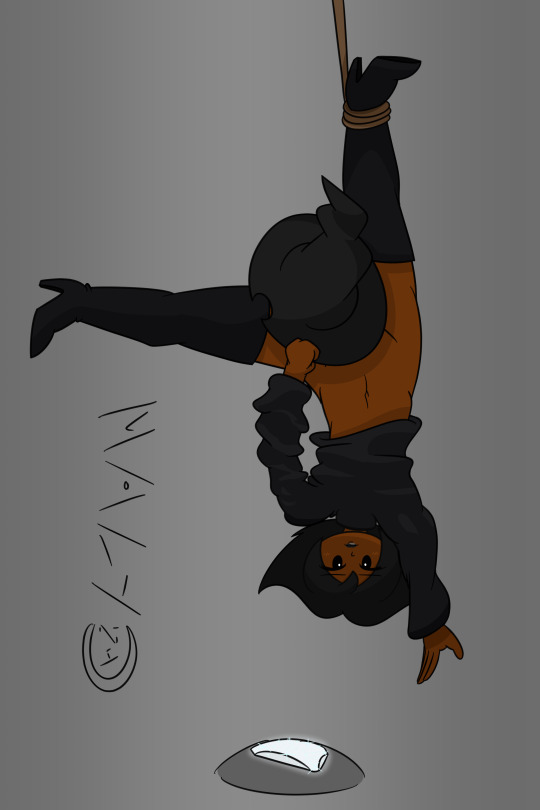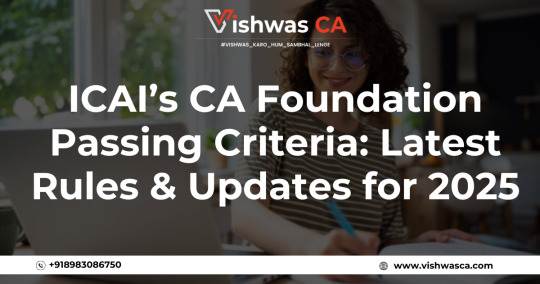#2024 in intermediate review
Explore tagged Tumblr posts
Text
2024 Intermediate Tumblr Top 10
1. 230 notes - May 21 2024

2. 181 notes - Jun 16 2024


3. 147 notes - Feb 29 2024

4. 106 notes - Jun 12 2024

5. 103 notes - May 3 2024

6. 100 notes - May 23 2024

7. 24 notes - Jun 7 2024


8. 22 notes - May 19 2024


9. 20 notes - May 7 2024

10. 18 notes - Jun 27 2024

Originally compiled by TumblrTop10. (This was manually written as TumblrTop10 doesn't support Community Labels.)
-
The only thing I want to say here is that I can’t really say I ever expected my art here, or any of its content/subjects (Dewey primarily) to really take off as it has so far--it’s actually dwarfed my main art label/art blog label (and pretty much anything from my other blog that wasn’t a repost) by a sizable margin (in notes and followers). Crazy since this is (or was, anyway) supposed to be a distant satellite to said art label/art blog.
Let's see where things continue from here!
#tumblrtop10#tumblr top 10#tumblr top ten#2024#2024 in review#2024 in intermediate review#art summary#art retrospective#intermediate art summary#intermediate art retrospective#long post#suggestive#partially nude
28 notes
·
View notes
Text
2024 Intermediate Tumblr Top 10
1. 180 notes - May 25 2024

2. 144 notes - Feb 26 2024


3. 101 notes - Mar 9 2024

4. 77 notes - Jun 1 2024

5. 68 notes - Jan 30 2024


6. 38 notes - Feb 10 2024

7. 35 notes - Feb 26 2024
Pan Rebanado (Animation) [you can view it in the link]
8. 33 notes - Jun 7 2024

9. 32 notes - Mar 23 2024

10. 28 notes - Jan 31 2024


Created by TumblrTop10
-
It’s that half-time again. I think it’s important to keep doing these to show how much interest has grown in my art, ever since I started doing these on a regular basis.
Case in point: You can view my previous Intermediate Tumblr Top 10s for 2023, 2022, and 2021 in the links. I’m only halfway through 2024, and my art above has received more notes than all of my art from the previous three intermediate years combined. (And it’s worth noting the 2023 intermediate was itself a huge jump over the previous two years as it is.) Moreover, my top ten art for the first half of 2024 is actually just a few notes behind my top ten art for the entirety of 2023.
So I’d like to think I’m kinda doing something a bit right--both for myself and the handful of people out there that appreciate my creative works.
[This doesn’t --for content reasons-- include art from my other art label/art blog, which has actually grown to be a heavyweight in its own right. It actually reached a tumblr milestone I’ve never hit with this blog or any of my other blogs for over a decade, despite only existing for nearly one year. Combined, the two art blogs/art labels mark the first time I’ve had my top ten artworks collectively earn over 1000 notes! (And again--it’s an achievement made when the year is only halfway done!)]
#tumblrtop10#tumblr top 10#tumblr top ten#2024#2024 in review#2024 in intermediate review#art summary#art retrospective#intermediate art summary#intermediate art retrospective#long post
8 notes
·
View notes
Text
FAGGOT!!!!!
wizard, im a really cool epic loser nerd faggot. im an autisic adhd-haver, he/him BOY and um I LOVE BOYS RRRAAAAAH 🗣🗣🗣🗣🔥🔥 (& also nbs but not as much)
my name can be Oris, im a teenger and people keep thinking im a tboy but nope. im just a cis dude with a rlly high voice (tboys are hot tho!)
I HAVE A REALLY BIG CRUSH ON WILL TOLEDO THE SINGER AND SONGWRITER AND FRONTMAN AND MULTI-INSTRUMENTALIST FROM CAR SEAT HEADREST, OK? OK!

special Interests:
music 💯💯💯🗣🗣🗣🗣❤️❤️🔥🔥🔥
car seat headrest 😱😱😱💥💥💥💥🤤🤤🥵🥵🥵
some stuff i like
men & nbs 🗣🗣🗣 (i am so funny)
horror movies (eps þe gorey ones)
MUSIC!! MUSIC!!! (@orisblue)
snails (@ringo-snail) & parrots
art (@devilishparrot-art)
reading (currently clockwork orange)

music:
artists/bands i like in no particular order; (faves have a heart)
will wood and the tapeworms
beatles
car seat headrest <3
1 trait danger
methwax
femtanyl
100 gecs
gezebelle gaburgably
xXHANAVENOMXx <3
shitty kickflips
pigeon pit
kimya dawson <3 or the moldy peaches
crywank
neutral milk hotel
weatherday
pavement
talking heads
sodikken
there were more but i removed them cus i havent listened to them in a while
im probably listening to music or playing the guitar as you read this. i always have music stuck in my head
intruments i play:
guitar (intermediate)
ukulele (intermediate)
piano (beginner)
bass (beginner)
been collecting cds for a year and i listen to one new album every day
new-to-me albums in 2024 review



tags used:
my original posts are devilish rambles. asks are devilish ask, art is devilish art, and gay posting is 🤩🥰😍
EXTRA STUFF
please dont tag me in tag games cus i wont do em
my pinterest & letterboxd

#pinned post#pinned info#about myself#devilish rambles#🤩🥰😍#<for myself. ignore that#reminders to self:#minecraft. parrot. dreams.#< again. ignore that
76 notes
·
View notes
Text
Geometry Dash Awards Nominees 2024
Heyo, doing something a little different for the Geometry Dash Awards. I’m going to go through all the nominations and my thoughts on the levels I find interesting. No number ratings or anything cause who cares
Best Auto Level
Okay, it’s Interstice, like, no contest. Outside of GD, I do motion graphics, and I am just a huge fan of these sorts of animation videos. Color choice is wonderful, great compositions, everything moves in such a satisfying way–it’s perfect, the other nominations don’t even come close.
Best Beginner Classic
Back On Dash is definitely a really great level–I love AudieoVisual levels, but this one feels a lot less unique than his other levels, and it’s not surprising given that this was made for the NCS event levels. Still, pretty great, but I’m gonna have to give this one to Cosmic Dolphin
The song is such a classic, and it takes rainbow blocks and makes something really great with them. I’m a sucker for star/constellation themes, and this level certainly checks that box. But like, it’s just a really fun, cute level. It uses 2.2 features in a really tasteful way.
Another one of the nominations for this category is Rage Quit, which I suspect is going to be the winner and that’s going to be very controversial. There’s nothing I can really say about Rage Quit that hasn’t already been said, so I’m going to stay out of that discourse. Anyway, yeah, Cosmic Dolphin wins this category for me.
Best Intermediate Classic
I’m going to fucking kill myself if BUSSIN wins. I’m not going to go into detail as to why I hate that level, as I’ve already written a little bit about that. Anyway, CARASPACE is gorgeous, it’s absolutely the winner here. Back to back space/constellation themed levels, but look, they’re just pretty. This level has a lot of unique ideas and it executes them really really well. Also, fine, yeah, the rainbows are pretty.
There are some other solid picks in here, though. getHappier is honestly really good, but it’s a bit slow and doesn’t really capture me. I don’t hate it though, there’s for sure a lot to enjoy about it, just not really for me.
Subwoofer Lullaby is an interesting one to me. I might write a full review on this level at some point, because there’s something so curious about a really well-executed Minecraft-themed level made in GD, which is a game with a very powerful level editor, but it wasn’t really intended to do a lot of the stuff people are doing, while Minecraft’s custom content tools have intentional design and are generally pretty good, even if there are a lot of issues lol. There’s a lot to chew on here.
Still, CARASPACE takes it for me, it’s fantastic in so many ways.
Best Advanced Classic
Honestly I don’t have a lot to say about this category. Next Cab Soon and MAGISTRO are both really solid, I’m just not crazy about them personally. WANNACRY is pretty cool, but has a lot of stuff I dislike, and I have a mostly negative view of Citadel and Astralith.
All of the other ones are alright, but nothing to write home about, except for I See Stars. And, to be honest, I don’t have a whole lot to write about for this level. It’s really great compositionally, and color choice and pulses are really well done. The final part with a cube on a glowing glossy field of spikes is just gorgeous. Great level, I See Stars wins best advanced classic for me, no contest.
Best Expert Classic
commatose, commatose, it’s fucking commatose, commatose is the best GD level I’ve ever played in my god damn life and nothing is ever going to top it. I don’t think I’m going to write a whole lot about it here, because I’m planning on writing a full review on it once I beat it.
I will say though, glass beach saved my life. I was in a really dark place when I listened to the first glass beach album for the first time, and it was able to reach out to me when nothing else could. It was an honest depiction of the world for trans people at the time, and it’s only gotten more resonant as the years go by. It’s honestly very uplifting, listen to the first glass beach album it’s so fucking good.
So I was thrilled for glass beach’s second album, plastic death. Initially, it didn’t really speak to me in the same way tfgba did, but over time it’s grown a lot on me. commatose is a beautiful song in every sense of the word, and this level is such a perfect love letter to it.
And, yeah, if it wasn’t obvious, none of the other levels in this category come remotely close to commatose. Out of This World is pretty interesting, but like, god damn commatose is so fucking gooooooood
Best Extreme Classic
I honestly don’t really have much of an opinion on this one. I’ve never really enjoyed extremes, because they’re just too hard to make playing it feel worth it. Mostly the only extremes I like are absolute classics like Bloodbath.
However, DISSONANCE is honestly really great. It’s such a colorful and different experience–I can’t speak much to its gameplay, but visually it’s a whole lot of sparkly digital fun. Good level, ImMaxX1 is a great creator all around.
Best Beginner Platformer
So, platformer levels, huh. I have a lot to say about even the simple existence of platformer levels, but I’ll avoid getting into that now, or else this post would be at least twice as long. Though, a significant portion of my opinion on platformer levels is fueled by the common use of pixel blocks. They’re just ugly as fuck, man. I don’t doubt my opinion on pixel blocks is colored by my experience doing pixel art and 3D models for Minecraft, but like, knowing that doesn’t make pixel blocks in GD less ugly lmao.
And yeah, pixel blocks aren’t exclusive to platformer levels, obviously, but creators seem to use them a lot more. So that’s why Last Fate sucks. Okay, but, yeah, Automata is pretty good. Not crazy about any of these, but Automata wins. Geometry Club is a pretty cool concept, and looks pretty nice, but talking about that level opens up the door to the GD-as-a-game-engine discussion, and that would also probably double or triple the length of this post.
Best Intermediate Platformer
There are some pretty solid levels in here; I mean, half of them are pixel blocks, so they get immediately disqualified (sorry AbstractDark), so the three main contenders for me were 3Depth, The Backrooms, and Pseudo Zone.
The Backrooms is probably my least favorite of the three–it’s pretty cool, but I’ve never been a fan of the direction that the internet took the backrooms concept. It morphed from an uncanny but entirely unhostile environment to a bit of a horror playground. Creatures are just a negative addition no matter how you slice it. I like the idea of the environment itself being the threat–it’s not that some scary monster is gonna kill you, it’s that you’re stuck in this endless, monotonous labyrinth with no hope of escape. The isolation is the terror. Ironically, the addition of monsters humanizes the environment.
So, yeah, cool level I guess, just not crazy about the theming personally. So we’re left with 3Depth and Pseudo Zone. As much as I really admire the concept and execution of 3Depth, it’s ultimately not a GD level. I don’t think making a game on top of regular GD makes a level bad, but it makes a level not a GD level. It’s really cool, but it’s your own concept. And that’s hopefully all I’m going to say about the GD-as-a-game-engine discussion in this post.
In the end, I think Pseudo Zone is the better level. There’s nothing obviously super crazy about it, it’s just really solid. Great concepts and visuals, and it’s just overall fun to play.
Best Advanced Platformer
It’s Flipswap Factory. I don’t have to go into more detail; Coaster Mountain is pretty solid, I mean, it’s made by Serponge after all, but Flipswap Factory is simply a masterpiece in level design. I’m not crazy about most of the visuals, it’s on thin fucking ice with the pixel blocks, but the gameplay concepts are so perfect I can look past that.
The flipping panels function flawlessly, and are just a great extension of normal platformer gameplay. It’s just great.
Best Expert Platformer
Do not talk about Otu, do not talk about Otu, do not talk about Otu…
Honestly, I’m not crazy about any of these levels, but the one I find the most interesting is Orbdancer. I’m not fond of a lot of the UI/menu stuff, but it’s so visually compelling that I’m willing to overlook that. The abstract bright neon aesthetic is wonderful, using orbs/pads so heavily is somehow a very unique concept while also being wholly GD.
Orbdancer isn’t my favorite level by any stretch of the definition, but it’s compelling enough to me that it wins the top spot out of this selection.
Best Extreme Platformer
Look, I am just anti-voting for Throat of the World. It’s so ugly, genuinely awful use of pixel blocks. Not fond of the gameplay either, and it’s astonishing to me that it got a mythic rating, but the rate standards debate is way beyond the scope of this post, which is why I’ve been totally ignoring the in-game ratings up until this point. It’s just so wild that a level I dislike this much would get the highest possible rating.
So, uh, Terminal Heaven wins, I guess. Nothing against Kebnekaise, but I just prefer Terminal Heaven a bit more. G4lvatron levels are all pretty solid.
Best Streamer
This is a level review blog, so I don’t have a whole lot to say about some of these additional categories, but I’ll write about them for completionists’ sake. I’m voting AudieoVisual on this one; I love his building streams. Not much else to say about that one.
Best YouTuber
This one is pretty tough. I’ll get into this a bit more with the next category, but Colon makes some banger videos. He’s a great writer, and the research he’s done for a lot of his videos is absurd.
Best Video
This is absolutely the most difficult decision I’ve made while voting for these awards. Doggie’s Codependence video is kinda out from the start, because, I mean, at the end of the day it’s a video about beating a level that uses primarily gameplay VOD footage. It’s fine, but there’s a limit to how good those videos can be.
My least favorite from here is probably twd’s GD video essay–it’s really well-written, but there’s kind of a lack of substance there. Yeah, I have a lot of nostalgia too, and it was fun to take a look back at things, but these last 4 are just built different.
I mentioned before, Colon makes great videos, and The Secrets of Fake Geometry Dash is no exception. It’s just like, such an absurd series of events, it’s hard to imagine him making a bad video about this topic. It’s great and was enthralling all the way through.
But Sdslayer’s video, How Well Do GD Youtubers Know The ROBTOP LEVELS?, is just as good as Colon’s video in an entirely different way. The concept is really good, and again, it’s hard to imagine this video turning out poorly; game show-esque stuff is always really fun, and it was executed really well here. There’s plenty of fun extra stuff too, like the GD-inspired visuals and bonus stats at the end.
Now, I can’t ignore Spu7Nix’s BTS video of WHAT. I’m such a sucker for flashy visuals; as I’ve said before, I do motion graphics, and I looovee Spu7Nix’s graphics here. The narrative is told excellently, you can genuinely feel the pull of the downward spiral that Spu7Nix went through when making WHAT. It does a great job of explaining what into the level, absolutely in part to the great visuals. The video takes you to the point where it feels like you could make the level too. There’s so much going for this video, but I’ll stop here for brevity.
Okay. Now we’re at How I Made Geometry Dash In Minecraft by CraftyMasterman. This video is fantastic, and I feel so conflicted about placing this one. While I love Colon and Sdslayer’s videos, it was definitely between this and Spu7Nix’s. Crafty is really cool and makes great videos, and if you talked to me personally you would not be able to ignore my love for Minecraft. But. This isn’t really a GD video. This is a Minecraft video. And because of that, I’m choosing to vote for Spu7Nix’s video. Don’t get me wrong, there’s so much about this video that’s great–it honestly mirrors the BTS video of WHAT in many ways. It explains the creation of the project really well, and this is probably the coolest redstone creation I’ve ever seen, but I’ve gotta give it to Spu7Nix.
Honestly, great job to everybody who was nominated for this category, as well as the many great GD video creators who weren’t nominated. It’s so wonderful seeing all this individual passion, creativity, and skill put into making such entertaining and visually captivating videos, which is a part of the reason why it was so frustrating seeing GD10 being included in the nominations last year, but that is absolutely a topic for another day.
Anyway, yeah, amazing videos all around, but I’ll extend a tiny additional bit of praise to Spu7Nix. Phew, that category was a doozy.
Best Classic Creator
There’s so much to write about with this category, but in the interest of not having a repeat of the last category, I’ll keep it brief. Not really a fan of Grax or Subwoofer; kira9999, Glubfubers, and Aimbotter2123 are all really solid; Knots is great, just not for me; ImMaxX1 is a really great creator, but I’m sorry–AudieoVisual is in here and I love his levels, so he kinda wins by default.
Best Platformer Creator
This category is honestly pretty weird, because it’s sort of split in two. There’s good platformer creators in the traditional sense: striving for great visuals and gameplay, but there’s also good programmers. CreatorCreepy and MoistenedEgg are absolutely in the latter, and I’m not discounting that, but levels with good programming just don’t interest me at all from a gameplay perspective. Like, guys, please, just make your own game; it’ll be way easier and you won’t be fighting against the editor designed to make 2D platforming levels.
Out of the rest of the bunch, it’s zejoant no contest for me. Overall, I’ve never been a fan of platformer levels at a conceptual level, but zejoant is genuinely doing great stuff with platformer mode. Good job, zejoant.
Best Classic Player/Best Platformer Player
This category has always been kinda weird to me, like I get the idea is to showcase and honor the dedication and contributions of top players, but it kind of ends up turning into a popularity contest.
For classic, I mean, it’s Zoink, of course it’s Zoink, he’s just the best GD player currently and there’s not really any arguing that.
For platformer, I literally haven’t heard of any of these people, so I’ll just pick AyumiRenko because hehe funny pink robot. Which, sidenote, cool idea representing classic players with cubes and platformer players with robots. I don’t know who on the GD Awards production team came up with that idea, but it’s really cool honestly.
Final Thoughts
It’s really wonderful seeing how talented the GD community is. This year was the first one where 2.2 content was up for nomination, and it’s been really interesting to see the whole community evolving. I’ve written a bit about this, but at first it seemed like 2.2 wasn’t all that groundbreaking for creators. The 2.1 editor is honestly powerful enough–once you get to the point where you’re just making regular art with the principles of design, I mean, additional tools are going to help, but our building skill and creativity as a community is already extremely high.
Those things grow over time, and now we’ve had time to see them grow with 2.2. And, yeah, people have made some great stuff. As critical or pessimistic I can be about specific levels and certain parts of the community as a whole, it’s still a treat to look back on all the great things artists have done with GD.
I’m sure we’re going to see even more of that at the 2025 Geometry Dash Awards, and I can’t wait. Thanks for reading.
5 notes
·
View notes
Text
Language Goals 2024
Another year, another set of goals! This year, in the actual spirit of my very reasonable 2022 language goals, here are my plans for language study.
Catalan
First and foremost, my goal is to find Catalan friends in my new hometown, because I really need to speak Catalan with people at minimum once a week or I get very sad, and currently I’m not speaking it with anyone at all. This goal is pretty chill though—I just have to actually sit down and put in the time to find people.
My main goal is to read 30 books in Catalan. I’ll make a proper post about it with a list of books that I’m thinking of and how the challenge itself is going to work, but overall I’m trying to pick a mix of styles and genres, so expect anything from medieval literature to YA novels to academic texts. I have a lot of books that I’ve been meaning to read for a while, so hopefully this will give me a chance to chip into some of them. 30 books is less than other versions of this challenge that I’ve seen, but it’s also many more books than I’ve read in Catalan possibly ever and I think it’s more reasonable in conjunction with a full class load. Hopefully it ends up being just the right amount!
Welsh & Basque
This year I really want to work hard to actually get these two to an upper intermediate level, because I’m so close if I put in the work. For both of them, I have two main goals: (1) go through the textbooks/workbooks that I started going through casually last semester (Basic Welsh: A Grammar and Workbook by Gareth King and Standard Basque: A Progressive Grammar by Rudolf P.G. de Rijk) so that I can continue to review and learn new grammatical structures, and (2) watch one episode of a TV series each week in each language. For the TV series, I’m going to be watching Rownd a Rownd on S4C (which is available outside Wales/the UK! Huge win!) and Eskamak kentzen on EITB. If I have time, I’ll try to go through episodes more thoroughly and note down new vocabulary and such, but the main goal is to make a routine of it and watch consistently so I’m trying to keep it simple. I’d also like to use both languages with other people more often if I can, but I think finding a consistent language partner will perhaps be a goal for another year.
Malayalam
I’m planning to focus the first half of the year on Welsh and Basque, and then next fall, I’m hoping to be able to take the Malayalam classes offered by my university and to get into studying my home dialect (or rather, my extended family’s home dialect, since I didn’t speak it at home) as well. Since this will be later and also classroom learning rather than self-study, I’m not going to go into details, but overall, after my trip to Kerala (which I have stuff about, it’s on the docket!), I’m generally feeling much less alienated and much more motivated to study the language. I’m also looking forward to being able to take real classes, which I think will help keep me focused and on track.
Russian
This is a minor goal, but at my friend’s house over the summer, her mom was joking that if they just spoke to me in Russian while I stayed at their house, I’d probably be able to understand it by the end. That led us to concoct a plan where I study a bit of Russian vocab, then go there and do intensive Russian immersion for a weekend or so. This is more of a silly goal, but I’d like to try it because I think it could be fun.
Anki
This isn’t a language goal per se, but rather a general resolution to spend this year learning to use (and tweaking and configuring) Anki. Anki has a notoriously high barrier to entry, and from everything I’ve seen it should be treated as a long-term, intensive project—I’ll hopefully reap the rewards later if I take my time and set up everything right in the early stages. With that in mind, I’m hoping that by the end of the year I’ve figure out a set up for my decks and cards that really works for getting me to remember and be able to use vocab and grammar. I’ll focus on the languages here for the start, but I’m hoping that with habit and time, if I get a good system going I can use it with other languages too.
And that’s it! It’s been a bit since I was systematic about studying languages, but I’ve found that I really miss it and want to go back. I feel like I’m at a really good place with all of these, and I’d like to continue to make progress, so I’m really trying to focus on consistency and hitting the sweet spot of just challenging enough to get myself out of my comfort zone while not burning out. Hopefully I’ve set this up in a way to build habits and make me excited to keep immersing myself with these languages in the coming years, which is really the key to learning any language in the long term—I've realized that I speak Catalan so well because it's fully integrated into my life, and I'd like all these others to be as well. Here’s to a good 2024, and I wish all of you luck with your own goals as well!
#a few days late but whatever#i've had a lot of spatial and temporal displacement in the past two weeks i think i'm allowed this one indulgence#i am trying SO HARD to set achievable goals#i'm so so bad at it but i'm slowly getting better hopefully this will be the year#also i forgot to include this but i really do need to get my spanish back up to speed#or not even up to speed at this point i haven't studied it since high school so i need to actually learn new things#a professor in the spanish department switched back to english while talking to me because i spoke it so poorly with him :')#però és que em fa pal el castellà no el necessito per res (<- mentida)#on the other hand solomon a gaenor has completed revived my energy for studying welsh and going to kerala has done it for malayalam#which um. i didn't even realize i could be that interested in studying malayalam. wowee we have unlocked feelings and emotions lads!#anyways we'll see how this goes but i'm going to do my best :')#general:goals#catalan:goals#welsh:goals#basque:goals#malayalam:goals#russian:goals
23 notes
·
View notes
Text
Updates 12/1/2024: oh wow its december
1. I got Clozemaster lifetime. It was expensive. I think too expensive. But it was half as expensive on black friday compared to the rest of the year. I HATE paying monthly subscriptions so it was Lifetime 1 time payment, or nothing. Thoughts? They have a new Fluency Fast Track with 10 collections of 1000 sentences each.
The positives of the new Fluency Fast Track: they said they used real japanese translators instead of MTL (however I am still seeing some weird situations in sentences, but less than before), they are using the same 10,000 base english sentences to translate for each language (I see this as a positive and a negative - good because it means they can do more different language translation pairs like spanish-arabic or french-japanese - negative because using english for base sentences means some Key Grammar or Sayings in certain languages could get totally missed in all 10k words... this is an issue Glossika has cause it also uses one set of english sentences it then translates to all other languages), the split into 10 collections of 1000 words each is GREAT for motivation (you see 10-20% of a bar completed a day if you study 100-200 sentences and for someone like me it can really motivate me to push to do 500-1000 sentences a day and see bars completed).
They still have the Legacy Fluency Fast Track, and a benefit I think it still has is that because the sentences are from Tatoeba, they're more like real language you run into online and in media to be honest. された and rera type verb forms show up so much more in real life than in most beginner study materials. In Glossika, they show up earlier which i think is a good thing as theyre quite common to actually hear or read. In the clozemaster Tatoeba sourced sentences they also show up often. But in the new Fluency Fast Track I have seen very Beginner Textbook type sentences so far, so its artificially easier than real life sentences... meaning you're less prepared for real life sentences - at least earlier on.
2. I'm still doing Glossika Japanese, wondering if I stop paying if I could keep the sentences I've studied to review for free... I'm in B1 module, 5462 sentences studied, 113 hours studied.
The thing with Glossika is... I DO think it helps a lot with everyday go shopping/small talk language. Maybe a tourist would get a lot of benefit from it? I also think it prepares well for listening skills (especially if like me you don't read the sentences much). I play Yakuza Like a Dragon and understand in listening almost everything in the side stories Ichiban walks into. And maybe its helping my comprehension of video games or anime... fuck it I should go test that by watching a lets play I'll be right back...
Alright, based on a Final Fantasy VIII lets play I just saw for 10 minutes... glossikas helping me understand the lets players comments (oh in a school, he doesnt say much, this guy doesnt know what happened) but the game script is about as understandable/confusing as it was a year ago.
Anyway. I will give a full review on Glossika once I finish the japanese course. And future me: you either use Chinese Spoonfed Anki audio deck (free) or Clozemaster (which I never have to pay again) if u want to intensively study Chinese more. Glossika is too much per month I shouldnt keep paying for it.
3. It is so FRUSTRATING being at this wonky intermediate level lol! (I'd guess my Chinese is just plain intermediate and Japanese is upper beginner/lower intermediate somewhere... probably upper beginner because that's when you can start reading and watching shows and playing video games but your brain feels fried after a few minutes to an hour because its so draining to focus and figure out whats going on).
I know I need to study a few hundred more hours to see progress in either language... and that takes so long lol!
And I have neglected chinese reading, so some hanzi are vaguer in my head (I can still mostly read around the same level though just I cant read ALOUD because I forgot pronunciations). And I have a friend from china and she likes checking out my books so if i ask what a hanzi is she will tell the pronunciation and then this full dictionary type explanation of all the things a hanzi means... and it'll remind me how BASIC Summary gist my understanding of MANY hanzi i can read are. How much more I need to know about each individual hanzi I already recognize, but dont know nearly as thoroughly. Its not a huge surprise... because I often learn to read as fast as possible and neglect deeper-meaning stuff and nuanced small details until later once Reading Itself is solid. (Thats why in french I can read anything but my produced grammar is Shit its Bad and my listening skill is like A2). But yeah... I not only need to listen more, read more, I need to in-depth study each word I already know more... at some point.
Goal for chinese is still just to listen more. But I only did like 10 hours of audiobook that month... that is too little time spent studying, when I need to study like 200-600 hours to see noticeable progress. I'm not changing the study plan though... listening focus is still critical.
My japanese is less good, which means I see progress Faster at least, but im still looking at like 200 hours to see noticeable progress and like 1000 hours to see it get to aby point closer to my Chinese comprehension level.
I'm toying with the idea of doing Clozemaster when done wirh Glossika for Japanese, as it has 10,000 words to learn so at least 4000-6000 of them should be new words once I'm done with Glossika. And it'll give me some reading practice. Yes Satori Reader is better... so maybe I'll do that, if my vocabulary feels big enough (like around 5000+ words) after Glossika.
4. I'm impulsive I'm a book collector I LOVE old language learning textbooks so... uh. I bought "All Spanish Method first and second book by Guillermo Franklin Hall Aviles." It was first published before 1923, its got a lot of interesting quirks of its time like teaching to the Spanish Academy standards and in a Spain accent (but explaining a Mexico accent once and the one I'll try to focus on). It's a direct method and Nature Method book with pictures and ALL IN SPANISH. And you know me... I love learning a language IN a language. So I may just learn to Read Spanish just like how I learned to Read French... and yes I still think the dreaming spanish youtube videos are cool... and I still have no free time.
I'm supposed to learn to code and repair technology this year in my free time...
I still do not know how to NOT overwork it seems
This is why I've been sick all fall probably. :c
It is so hard to tell myself: only read fiction, play video games, watch shows. No studying no intense work outside work no writing... cause I simply jump right back into trying those things :/
5 notes
·
View notes
Text
Week 1 of classes done and so far so good!
My classes for Fall 2024:
Intermediate Algebra with Review - a 5 credit 16 week course I have to take before I can take my degree’s required math course. Math has never been my strong suit so I scored a little below average on my placement tests. But! it counts towards my elective credits so that’s nice.
Microcomputer Applications - a 3 credit 8 week course. this also goes toward my elective credits and i enrolled because i already took basically the same class in high school so i already know the material. easy credits.
World History Since 1500 - a 3 credit 16 week course that goes towards my gen ed credits. definitely going to be my hardest class, mostly due to the readings. i love reading but only subjects i’m specifically interested in and unfortunately history isn’t one of them.
Wellness for the Individual - a 2 credit 8 week course also going toward my elective credits. enrolled in this one out of self-interest.
Intro to Mass Communication - a 3 credit 8 week course that will replace my Micro Apps class when it finishes. this class will count toward my gen ed credits.
As you can see, 10/16 of the credits i’m taking this semester are toward my electives. This is because I took most of my gen ed classes as dual credit during high school, so I have very few left I need to finish.
3 notes
·
View notes
Text

* * * *
Supreme Outrage!
April 26, 2024
ROBERT B. HUBBELL
The Supreme Court heard oral argument on Thursday regarding Trump's presidential immunity defense. For clarity, that defense asserts that the president is above the law and beyond the reach of US criminal statutes that otherwise apply to every American. To the shock of everyone—and no one—the reactionary majority expressed sympathy for Trump's defense. The hearing itself was a supreme outrage. While the reactionary majority may not adopt the most extreme version of Trump’s defense, they need not do so to grant Trump a victory. Indeed, they have already granted Trump most of what he asked for: a lengthy delay.
Before I review the debacle that masqueraded as a Supreme Court hearing, let’s skip to the most important part: We have a remedy; we need only be bold enough to claim it. The current court is illegitimate; we must effectively replace it by enlarging the Court to overwhelm the reactionary majority.
Is such a plan reasonable? Constitutional? Wise? Achievable? Yes! Mitch McConnell created an Orwellian rule to deny Democratic presidents the right to appoint Supreme Court justices—and then waived the novel rule as soon as it would apply to an appointment by a Republican. Three justices (at least) lack legitimacy: Gorsuch and Barrett, whose appointments were tainted by the McConnell rule, and Clarence Thomas, who should recuse himself from every case relating to Trump. In short, one-third of the Court that heard Trump's arguments on Thursday had no business presiding over Trump's immunity claim.
Expanding the Court requires only a majority vote in both chambers of Congress and the signature of the president. Those conditions are within our grasp in November 2024. When I first raised this prospect in 2018, it was met with shock and horror by readers, who protested that expanding the Court would undermine its legitimacy. Such objections seem quaint in light of the damage wrought by the Court in six short years.
As Ian Millhiser of Vox wrote today,
One takeaway from today's debacle of a Supreme Court argument is Democrats need to start seriously considering packing the Supreme Court. A Court that would allow Donald Trump to get away with trying to steal a presidential election cannot be trusted.
We have a long list of issues that should drive us to the polls in historic numbers in November. Add to that list that we are burdened with a lawless Supreme Court that cannot be trusted with our democracy or Constitution.
As noted above, the reactionary majority granted Trump a victory before the hearing began by refusing Jack Smith’s request to skip the intermediate step of an appeal to the DC Circuit Court of Appeals. The Court enhanced that victory for Trump by refusing to hear the matter on an expedited schedule. And now it appears that the Court will issue a fractured opinion on the last day possible (June 30) that will order the trial court to engage in pointless pre-trial fact-finding about the difference between “private” and “official” acts.
But most critically, the reactionary majority gave Trump a victory by dignifying ludicrous arguments that should have been rebuked and condemned the moment Trump's counsel gave them voice. In failing to reject those arguments out of hand, the reactionary majority bestowed upon them the veneer of legitimacy and respectability they do not deserve.
For example, Supreme Court Justice Sonia Sotomayor asked Trump's lawyer,
If the president decides that his rival is a corrupt person and he orders the military to assassinate him, is that within his official acts to which he has immunity? Trump's lawyer responded, “That could well be an official act [and therefore immune from prosecution]”
How did we arrive at this point? How is it possible that counsel for a former president could say with a straight face that a president can order the assassination of a political rival with impunity? How could the justices sit silently and ponder counsel’s answer instead of rising in horror and ordering the attorney out of the courtroom? They are feckless. They have abandoned the Constitution in its hour of need by failing to communicate the horror and repulsion such arguments deserve.
The reactionary majority also gave Trump a victory by refusing to acknowledge the constitutional urgency of the attempted coup and insurrection. Rather than focusing on the facts alleged in the indictment against Trump, the reactionary majority crafted ever more fanciful hypotheticals that had no bearing on the case at hand. As expressed by Professor Laurence Tribe,
Today’s SCOTUS argument was more like a hearing in Congress to design an immunity law for future presidents, with Justice Kavanaugh saying “We’re not taking about the present case” and Justice Gorsuch saying “We’re writing rules for the ages” and Justice Alito joining in.
Only Justice Jackson reminded her colleagues that deciding this case was the Court’s task and that it might not be cool to use it as a vehicle for “answering in advance all these abstract questions”!
By engaging in fantasy rather than focusing on the facts at hand, it is inevitable that the Court will send the case back to the trial court for pre-trial fact finding—an outcome that will ensure the case will be delayed until after the election. The Court will thus deny all Americans the opportunity to cast their vote with the benefit of a jury verdict on Trump's guilt or innocence.
Justice Alito reached the pinnacle of bad faith by arguing that not granting immunity to Trump would increase the likelihood that a future president would try to stay in power. Huh? Every president before Trump relinquished power voluntarily without benefit of presidential immunity. If Trump is told he has absolute immunity and wins a second term, what motivation would he have to leave office—ever?
Alito also summited the peak of hypocrisy. In Dobbs, he wrote that there is no constitutional right to an abortion, reasoning as follows:
Constitutional analysis must begin with “the language of the instrument . . . The Constitution makes no express reference to a right to obtain an abortion . . . .
But the Constitution make no reference to “presidential immunity.” As counsel for Jack Smith argued,
There is no immunity that is in the Constitution, unless this Court creates it today.
Do not expect blatant hypocrisy to slow Alito’s headlong embrace of presidential immunity that appears nowhere in the Constitution. Alito knows no shame in service of his reactionary agenda.
For additional discussion of the oral argument and potential outcome, see
Ian Millhiser in Vox, The Supreme Court is likely to place Donald Trump above the law in its immunity case (excellent legal summary), and
Chris Geidner at Law Dork, SCOTUS approach to Trump's immunity claim likely to delay D.C. case further (substack.com) (deep dive into argument by counsel and questions by justices).
Millhiser predicts an outcome along the following lines:
At least five of the Court’s Republicans seemed eager to, at the very least, permit Trump to delay his federal criminal trial for attempting to steal the 2020 election until after this November’s election. And the one GOP appointee who seemed to hedge the most, Chief Justice John Roberts, also seemed to think that Trump enjoys at least some immunity from criminal prosecution.
As summarized by Josh Marshall of Talking Points Memo, The Court is Corrupt. Say It With Me. Per Marshall,
The Roberts Court is a corrupt institution which operates in concert with and on behalf of the Republican Party . . . That’s the challenge in front of us. . . . But things become more clear-cut once we take the plunge and accept that fact.
The courts are not going to save us. The reverse is true. A significant portion of the federal judiciary has been corrupted and undermined by judges loyal to a reactionary religious and partisan agenda above all else. They view the Constitution and statutes as convenient “talking points” when they advance their agenda and disposable trifles when they do not.
Our remedy is at the ballot box. We must give Joe Biden control of Congress and a mandate to reform the federal judiciary—starting with the Supreme Court. We can achieve that goal if we are disciplined and tenacious. Put aside all disagreements and reservations to ensure Democrats win control of the executive and legislative branches in 2024. Then we can begin the long, slow work of repairing the damage inflicted in a few short years by the reactionary majority empaneled by Trump, McConnell, and The Federalist Society.
[Robert B. Hubbell Newsletter]
#Robert B. Hubbell#Robert B. Hubbell Newsletter#SCOTUS#corrupt SCOTUS#Criminal SCOTUS#presidential immunity#the US Constitution#equal under the law#rule of law
4 notes
·
View notes
Text
Goodbye, Amino
Amino will always have a large part of my heart. I was an active member for 7 years, and the idea of leaving physically pains me. I will always remember the Golden Age, when 5 new posts popped up with each refreshing of the page, and there were near a hundred people online at a time.
Unfortunately, we are long past that. If you’re reading this, there’s a good chance you’re coming from Pagans & Witches Amino and want to know why I left.
The first nail was the decline. Our most active members used to be experienced witches & pagans, and discussion at an intermediate or advanced level was common. The feed was full of great information, often including personal paradigms and paths built over years of experience. There was diversity; everyone talked about the differences in their beliefs and the different ways they connected to magic, to energy, to gods. P&W was a place of learning for all levels, where we knew each other and felt like a community. But now, we feel like a forum. Many of our experienced members have left, so discussions have dried up. Most conversations are now delegated to the beginners who ask basic questions and share their excitement over their first steps. Nuance has been lost, because beginners are still learning the black and white areas. We give lip service to the different ways of doing witchcraft, but because the beginners don’t have their paradigms yet, the discussion goes no further. It no longer feels like an app for everyone, but rather it feels like it’s an app for beginners. As much as I love answering questions and helping people find their footing, when it comes to my own questions and wanting to broaden my knowledge, I find there is no one to talk to.
The second nail was the shrinking of the community. In 2022, we gained over 4,000 new members. In 2023, we gained 1,064 new members. In these five months of 2024, we have a net increase of 172 members; we are on track to gain ~350 new members by the end of the year.
The third nail was leadership. Because of the commitment and subsequent burnout, we tend to go through admins in “eras”. The Golden Age was still the original leadership, long before they burned out. While there were minor changes as people stepped down, it mostly stayed the same and was made of kind, fair people. Issues were dealt with quickly, and leadership was often active in the chatrooms, building rapport and letting us get to know them. When they stepped down, the next era was rife with favoritism and drama. They stayed in their private chats, and often allowed their personal feelings to determine if someone was breaking the rules. After people were forced to step down, we now have this third era who’s defining trait so far is being paranoid of repeating the second era’s mistakes. They have become bureaucratic to the point of ineptitude. Everything must be brought before the entire team for them to discuss, slowing everything down.
My moment of realization was when I suggested a poll that could identify what people wanted to get out of Amino; were they looking for information, community, or purely a place to ask questions? I was more than willing to make it, post it, and share the results with leadership. When I sent the link to leadership for review, they informed me this poll would be better suited for their team to present. They would credit me, of course, but it still left a bad taste; I had done similar polls before (within the last couple of months, actually) and never had a problem. I gave them permission, and I am still waiting for the poll to be posted to Amino. It’s been two months.
(Honorable mention to being told that a post containing misinformation could not be taken down due to the OP saying it was a conpantheon deity. The post in question claimed this deity was a previously undiscovered deity of the Greek pantheon who ruled over…-checks notes- Polyamory, albinism, and harems; none of those topics make sense in a Greek deity’s domain.)
I will keep all my posts up on Amino, but I have already stepped down from my chat host position. I would love to see a Renaissance, but right now I think Pagans & Witches Amino is heading towards a gradual death. As I said, I will always love it, and while I cannot bring myself to uninstall the app, I think it is time for me to move on.
6 notes
·
View notes
Text
My Impossible List
My name is Chester, and I'm sure you've seen this list of things before. Something about it being different from a bucket list (and it is different than a bucket list) -- look, I got my inspiration from Thomas Frank, who got the inspiration from Joel Runyon.
In my own words, the impossible list is a continuous list that inspires growth and documents strides in personal development. A helpful tool that can aide in motivation. Not a set and forget, but a thoughtful pondering, organized list, and an updating system, where you log when you've achieved something and what you're going to do next. Like most people, I've set my list up with different categories.
Current Focuses:
Honestly, getting my life together. I've been slacking in health overall, and I need to start taking care of myself both physical and mental health-wise. Trying to hyper focus on learning new skills, mindfulness, and fitness/health.
Last 5 Completed Goals:
*crickets* Well of course there's going to be crickets right now, this list has just come to fruition. I will update with my most recent goals as I complete them!
LIFE GOALS
-> Own a home in my hometown -> Own a place somewhere else, too -> Borderline Personality Disorder symptoms in remission -> Create and maintain a healthy relationship with a significant other -> Make enough money through passionate endeavors (video games, YouTube, writing) that I only have to "work" work part-time -> Become a published author -> Pay off my debt -> 30k Student Loans -> 15k Car -> 9k Credit Cards -> Learn about stocks and investments -> invest money
PROFESSIONAL GOALS
WORK
-> Stay at the library for as long as possible (5yrs pension starts, 10yrs student loans are forgiven, 15yrs max vacation time) -> Earn blue in 2 categories in yearly review -> Earn blue in majority of categories in yearly review -> Earn blue overall in yearly review
YOUTUBE CHETSETRADIO
-> Set up channel -> Upload 5 10 25 50 videos -> Gain 10 25 75 100 250 subscribers
CHETTERBOX TALKS
-> Set up channel -> Upload 5 10 25 50 videos -> Gain 10 25 75 100 250 subscribers
OTHER
-> create and publish a video game
FITNESS & HEALTH GOALS
-> Lose 100lbs -> Walk to work 3 days a week for 1 month 6 months 1 year -> Work out everyday for 1 month 6 months 1 year -> No take out for a month straight -> Learn how to cook -> Add more fruits and vegetables to my everyday diet -> Walk 5 miles -> Run a mile -> Run a mile in less than 9 minutes -> Participate in some sort of race (run?) -> Swim 500 free with no problem -> No soda for 1 month
CREATIVE GOALS
-> Fill up a sketchbook with art that I'm proud of -> Release an EP -> Participate in NaNoWriMo 2024 -> Self publish a novel -> Traditionally publish a novel -> Re-learn how to play the Alto Saxophone -> Learn how to play the Trumpet -> Learn how to play the Cello -> Learn how to play the Flute -> Learn how to play the French Horn -> Learn how to crochet -> Follow a short story writing prompt daily for 1 month
SKILLS & EDUCATIONAL GOALS
-> Learn how to code -> Make my own website -> Program my own video game -> Learn Music Theory -> Beginner Intermediate Advanced -> Learn Logic Pro -> Beginner Intermediate Advanced -> Learn Japanese -> Beginner Intermediate Advanced -> Learn German -> Beginner Intermediate Advanced -> Learn Korean -> Beginner Intermediate Advanced -> Learn ASL -> Beginner Intermediate Advanced -> Go back to school for my Master's -> Learn fractions, pre-algebra, and algebra
HABIT GOALS
-> Do my morning routine for 1 month 6 months 1 year -> Do my nighttime routine for 1 month 6 months 1 year -> Walk Pancake once a day for 1 month 6 months 1 year -> Meditate once a day for 1 month 6 months 1 year -> Journal daily for 1 month 6 months 1 year
TRAVEL GOALS
-> Visit every state in the US ( 3/50 ) -> Visit every state park in the US -> Camp in a different state -> Visit Greece -> Visit Japan -> Visit Korea -> Visit the UK -> Visit Ireland -> Visit Finland -> Ride a bullet train -> See the Hollywood sign up close in person -> Visit Stephen King's hometown ( Portland, Maine )
VIDEO GAME GOALS
STEAM
-> Perfect achievo 5 10 15 25 40 games -> All achievements in Hades -> All achievements in Slime Rancher
PLAYSTATION
-> Platinum 5 10 25 50 games
XBOX
-> Perfect achievo 5 10 25 50 games
NINTENDO
-> Finish Pokémon Sword -> Finish Pokémon Arceus -> All moons Super Mario Odyssey
GOAL INSANITY
-> Sky dive -> Bungee jump -> Meet a celebrity I like IRL -> Go to five different amusement parks -> Get a PHD -> Teach a class at a University -> Forever a student (so many degrees) -> Earn enough money to retire early
3 notes
·
View notes
Text
Leading Online Medical Coding Courses in 2024: Boost Your Healthcare Career Today
Top Online Medical Coding Courses in 2024: Boost Your Healthcare Career Today
Are you looking to advance your career in the healthcare industry? Medical coding is a vital component that ensures accurate billing, proper record-keeping, and seamless interaction between healthcare providers and insurance companies. With the increasing demand for certified medical coders, taking an online medical coding course in 2024 can open new professional opportunities and provide a flexible learning experience. In this extensive guide, we’ll review the top online medical coding courses in 2024, explore their benefits, and offer practical tips to help you choose the best program to boost your healthcare career.
Why Choose Online Medical coding courses in 2024?
Versatility: Learn at your own pace from anywhere in the world.
Cost-effective: Save on commuting and accommodation costs.
Wide variety of courses: Access beginner, intermediate, and advanced programs.
Certification prep: Many courses prepare you for globally recognized certifications like CPC, CCS, and CCDS.
Career advancement: Gain skills that can led to higher salaries and better job prospects.
Top Online Medical Coding Courses in 2024
1.AAPC Certified Professional Coder (CPC) Online Course
The American Academy of Professional Coders (AAPC) offers one of the moast reputable online medical coding training programs. This course is designed for beginners and those seeking CPC certification, a valuable credential for medical coders.
Features: Self-paced modules, practice exams, and comprehensive study guides.
Eligibility: No prerequisites required.
Certification exam: Included and can be taken online or in testing centers.
2.AHIMA Certified Coding Associate (CCA) Virtual Course
The American Health Information Management Association (AHIMA) provides a robust online program that prepares students for CCA certification, perfect for entry-level medical coders.
Features: Interactive lessons, real-world case studies, and practice questions.
Flexibility: Access content 24/7 for maximum convenience.
Focus: In-depth understanding of health information and coding principles.
3. Udemy Medical Coding Courses
Udemy offers a variety of courses ranging from beginner to advanced levels, often at very affordable prices. Popular courses include “Medical Coding for Beginners” and ”Medical Billing and Coding Certification Course.”
Course Name
Features
Price Range
Medical Coding for Beginners
Video lectures, quizzes, certificate of completion
$20 - $100
Medical Billing and Coding Certification
In-depth tutorials, practice exams, lifetime access
$50 – $150
4. Coursera Specializations in medical Coding and Billing
Coursera partners with leading universities and healthcare organizations to provide accredited specializations. These courses often include practical projects and industry insights, perfect for students seeking comprehensive education.
Featured programs: “Healthcare Data Quality and Data Analytics,” “Medical Billing and Coding Specialization.”
Certification: Official certificates from partnering universities.
Learning format: Video lessons, peer-reviewed assignments, quizzes.
5.CareerStep Medical Coding and Billing online Program
CareerStep offers an all-inclusive online program designed to prepare students thoroughly for certification exams and real-world coding tasks.
Features: Career services, practice exams, professional instructor support.
Time Commitment: Typically 4-6 months for full-time students.
Outcome: Ready for CPC or CCS certification exams.
Benefits of Enrolling in an Online Medical Coding Course
Career flexibility: Work in hospitals, clinics, insurance companies, or as an self-reliant contractor.
High earning potential: Certified medical coders can earn between $40,000 to over $70,000 annually.
Accelerated professional growth: Enhance your skills and stay current with industry standards.
Job security: The healthcare industry continually needs skilled medical coders.
Practical Tips for Choosing the Right Online Medical Coding Course in 2024
Accreditation: Ensure the course is recognized by reputable organizations like AAPC or AHIMA.
Certification support: Check if the program prepares you for key certifications such as CPC, CCS, or CCS-P.
Course content: Look for comprehensive modules covering ICD-10, CPT, HCPCS, and medical terminology.
Student support: Consider programs that offer mentorship, instructor support, and community forums.
Cost and budget: Balance affordability with quality to find the best value for your investment.
Case Studies and First-Hand Experiences
Many students have successfully transitioned into rewarding healthcare careers through online medical coding courses. For example, Jane Doe, a former administrative assistant, completed the AAPC CPC course in just six months and now works remotely as a certified medical coder, earning a competitive salary and enjoying flexible work hours. Her experience illustrates the effectiveness of online programs and the value of certification for career advancement.
conclusion
In 2024, upgrading your skills with the top online medical coding courses is a smart move toward a lucrative and fulfilling healthcare career. Whether you’re seeking certification, career change, or skill enhancement, the right online program can make all the difference. With flexible learning options, comprehensive curricula, and industry-recognized certifications, now is the perfect time to invest in your professional growth. Start exploring these top online medical coding courses today and take the first step toward a brighter future in healthcare!
https://medicalbillingcodingcourses.net/leading-online-medical-coding-courses-in-2024-boost-your-healthcare-career-today/
0 notes
Text
Best Workout and Diet Planner App | Download TheGymFaction Today
In the modern fitness world, achieving your goals is about more than just lifting weights or doing cardio. It’s about balance—knowing when to push and when to recover, what to eat and when, and how to train smart. That’s where TheGymFaction shines. As the leading workout and diet planner app, TheGymFaction helps you stay on track with fully personalized fitness and nutrition plans—all in one powerful, easy-to-use platform.
Whether you’re a beginner, athlete, or simply looking to live healthier, TheGymFaction offers an all-in-one solution. You can now plan, track, and optimize your entire wellness journey through a single app that adapts to your needs. Download the app now and take control of your body and health.
Why Choose a Workout and Diet Planner App in 2024?
The demand for fitness apps is higher than ever in 2024, but most only offer half the solution. You either get a basic workout tracker or a calorie counter. But with TheGymFaction’s workout and diet planner app, you get both—combined seamlessly for total lifestyle transformation.
Here’s why it’s a game-changer:
1. All-in-One Fitness and Nutrition Tracker
Gone are the days of juggling between multiple apps. TheGymFaction merges your workout routines and diet plans under one roof, ensuring that your training and nutrition are in sync for maximum results.
2. AI-Powered Personalization
No two bodies are the same, and TheGymFaction’s smart technology understands that. Whether your goal is fat loss, muscle gain, or improved endurance, the app customizes your workouts and meals based on your progress, preferences, and physical condition.
3. Flexible and Adaptive Plans
You’re not stuck with one rigid plan. The app adjusts your routine weekly based on how you’re doing. This means if you’re feeling burnt out or hit a plateau, the app will adapt automatically—ensuring your progress never stalls.
4. User-Friendly Meal Planner
The diet planner function is intuitive and informative. It helps you plan meals according to your caloric goals, macronutrient needs, and dietary preferences—whether you’re vegan, keto, paleo, or anything in between.
5. Detailed Progress Tracking
You can monitor every aspect of your journey: workouts completed, calories burned, meals eaten, water intake, and even sleep quality. This holistic approach is what truly sets it apart as a leading workout and diet planner app.
Who Is This App For?
TheGymFaction is for everyone—from fitness newcomers to elite athletes. Here’s how it serves different audiences:
Beginners: Simple guidance, short workouts, and educational tools.
Busy Professionals: Quick, effective sessions and pre-built meal plans.
Fitness Enthusiasts: Advanced workout splits and meal macros.
Weight Loss Seekers: Targeted plans to burn fat while retaining lean muscle.
Strength Builders: Progressive overload programs with muscle-fueling meal guides.
Women & Moms: Programs focused on lean sculpting, postnatal recovery, and hormonal balance.
Features That Make TheGymFaction the Best Workout and Diet Planner App
Let’s take a deeper look at why TheGymFaction outperforms other fitness apps in 2024:
Smart Workouts
Personalized fitness plans based on your goals
Strength, HIIT, mobility, and cardio workouts
Beginner, intermediate, and advanced levels
Home and gym-friendly options
Intelligent Diet Planning
AI-curated daily meal plans
Customizable calorie targets and macro ratios
Grocery lists and meal prep suggestions
Nutrition education and recipe library
Performance Tracking
Daily and weekly check-ins
Weight, measurements, and progress photo tracking
Training and recovery analytics
Meal logging with nutritional breakdown
Support and Motivation
In-app community support
Motivational tools and habit tracking
Wellness reminders and goal-setting
What Users Are Saying About TheGymFaction
With thousands of downloads and glowing reviews, TheGymFaction continues to earn its place as a top-rated workout and diet planner app.
"This app has completely changed how I approach fitness. I never knew I needed such a tailored plan until I used TheGymFaction. I’ve lost 10 pounds and gained strength without burnout!"
"The nutrition and workout planning in one app is genius. I don’t have to switch between apps anymore. Everything’s there, and it’s so easy to follow."
These are just a few of the stories showing how powerful the right tools can be when they’re all in one place.
2024 Fitness Trends Aligned with TheGymFaction
The app is built to stay ahead of trends in wellness and technology. Here’s how it fits perfectly into 2024’s top health and fitness movements:
Hybrid fitness (home + gym): Check ✅
AI-led personalization: Check ✅
Holistic health (mind + body): Check ✅
Meal planning and macro focus: Check ✅
Habit tracking and mental wellness: Check ✅
No wonder TheGymFaction is rapidly becoming the most recommended workout and diet planner app of the year.
Final Words: Why You Should Download TheGymFaction Today
If you're tired of generic fitness apps or juggling multiple tools to manage your workouts and meals, it's time to switch. TheGymFaction is more than an app—it's your pocket personal trainer, nutritionist, and wellness coach. It’s designed for real people with real schedules who want real results.
Everything you need to live a healthier, stronger, and more balanced life is now just a tap away.
✅ Personalized workouts ✅ Custom meal plans ✅ Full body & mind tracking ✅ Transparent pricing ✅ Easy to use interface
0 notes
Text
If you're looking to invest in gym equipment in Bangladesh, Fit Alphaa offers a comprehensive selection tailored to various fitness needs and budgets. Understanding the gym equipment price in Bangladesh can help you make informed decisions, whether you're setting up a home gym or a commercial fitness center.
🏋️♂️ Strength Training Equipment
Dumbbells and Weight Sets
Dumbbells are essential for strength training. At Fit Alphaa, you can find:
1kg Vinyl Dumbbell Pair: Ideal for beginners, priced at approximately BDT 850.
2kg Vinyl Dumbbell Pair: Suitable for intermediate users, around BDT 1,260.
3kg Vinyl Dumbbell Pair: For more advanced workouts, priced at BDT 1,750.
Multi-Function Platforms
For comprehensive strength training, consider multi-function platforms:
Impulse Fitness 8 Stack Multi Station: Designed for professional use, this equipment's price is available upon request.
Impulse Fitness 5 Stack Jungle Multi Station: Offers versatile workouts, priced between BDT 720,000 and BDT 790,000.
🏃♀️ Cardio Equipment
Treadmills
Treadmills are popular for cardiovascular workouts. Fit Alphaa provides a range of options:(Fit Alphaa)
Power Max Fitness Treadmill (2024): A reliable choice for home use, priced at BDT 39,990.
Exercise Bikes
Exercise bikes offer low-impact cardio workouts:
Active Force Exercise Bike (2023): Suitable for various fitness levels, priced at BDT 22,990.
🧘♀️ Functional and Flexibility Equipment
Resistance Bands
For flexibility and strength training:
Fit Pro Resistance Bands Set (2023): A versatile set for various exercises, priced at BDT 2,990.
Yoga Accessories
Enhance your yoga practice with:
120cm Yoga Pull Rope Elastic Resistance Bands: Ideal for stretching and flexibility, priced at BDT 400.
💰 Understanding Gym Equipment Prices in Bangladesh
The gym equipment price in Bangladesh varies based on the type and brand of equipment:
Entry-Level Equipment: Items like basic dumbbells and resistance bands range from BDT 400 to BDT 2,000.
Mid-Range Equipment: Treadmills and exercise bikes typically fall between BDT 20,000 and BDT 60,000.
High-End Equipment: Commercial-grade multi-function platforms and advanced cardio machines can range from BDT 100,000 to over BDT 700,000.
🛒 Tips for Purchasing Gym Equipment
Assess Your Fitness Goals: Determine whether you're focusing on strength, cardio, flexibility, or a combination.
Consider Space Availability: Ensure you have adequate space for the equipment, especially for larger machines.
Budget Wisely: Set a budget that aligns with your fitness goals and stick to it.
Check for Warranties: Opt for equipment that comes with a warranty for peace of mind.
Read Reviews: Look for customer reviews to gauge the quality and performance of the equipment.
Investing in quality gym equipment is a step towards a healthier lifestyle. By understanding the gym equipment price in Bangladesh, you can make informed decisions that suit your fitness goals and budget. Explore Fit Alphaa's extensive collection to find the perfect equipment for your needs.(Fit Alphaa)
0 notes
Text
[Latest] Cambridge IELTS 19 Academic – Full Review, PDF + Audio Download & Test Keys
Cambridge IELTS 19 Academic – Full Review, PDF + Audio Download & Practice Test Keys Level: Intermediate to Advanced (Band 5.5 – 8.5) Skills Covered: Listening, Reading, Writing, Speaking Cambridge IELTS 19 Academic Student’s Book with Answers is the latest release from the Cambridge English series in 2024. This authentic resource contains 4 full IELTS Academic practice tests, answer keys, audio…
#cambridge ielts 10#cambridge ielts 11#cambridge ielts 12#cambridge ielts 13#Cambridge IELTS 14#cambridge ielts 15#cambridge ielts 16#cambridge ielts 17#cambridge ielts 18#Cambridge IELTS 18 Academic#Cambridge IELTS 19 Academic#Cambridge ielts academic
0 notes
Text
ICAI’s CA Foundation Passing Criteria: Latest Rules & Updates for 2025

The Chartered Accountancy (CA) course in India is widely recognized as one of the most prestigious and challenging professional courses. Governed by the Institute of Chartered Accountants of India (ICAI), it involves a rigorous multi-level examination structure, starting with the CA Foundation. As the academic landscape continues to evolve, ICAI frequently reviews and updates its syllabus, exam pattern, and passing criteria. For aspiring chartered accountants planning to appear in the CA Foundation exams in 2025, it is crucial to stay informed about the latest rules and updates set by the ICAI.
In this blog post, we will provide a detailed overview of the CA Foundation passing criteria for 2025, changes introduced by the ICAI, and how you can prepare effectively with the support of Vishwas CA, one of India's best CA programs.
Overview of CA Foundation Examination
The CA Foundation is the first exam taken by students who want to participate in a study in chartered accounting. It tests students’ fundamental understanding of accounting, business laws, logical reasoning, and economics.
The CA Foundation comprises four papers:
Paper 1 – Principles and Practice of Accounting
Paper 2 – Business Laws
Paper 3 – Quantitative Aptitude
Paper 4 – Business Economics
While Papers 1 and 2 are subjective in nature, Papers 3 and 4 are objective (MCQ-based) with negative marking for incorrect answers.
Latest Passing Criteria for CA Foundation (2025)
ICAI has released updates to the passing criteria that will be applicable from the May 2025 attempt onwards. Here are the latest rules:
1. Minimum Marks Requirement
A candidate who wants to pass the CA Foundation test needs to get:
40% or more on each individual paper, and
50% overall for each of the four papers.
This rule remains unchanged; however, students must be particularly cautious about maintaining a balanced score across all subjects. Focusing too much on one paper while neglecting another could result in failure despite high scores in individual subjects.
2. Negative Marking
The negative marking system for objective papers (Papers 3 and 4) has been maintained by ICAI:
Each wrong answer will result in one mark being subtracted.
This policy emphasizes the need for accuracy and careful analysis before attempting MCQs.
3. Changes in Syllabus
Under the revised scheme effective from 2024, ICAI made changes to align the syllabus more closely with current industry practices and regulatory frameworks. These updates are especially relevant for students preparing for the 2025 exams. It is essential to refer to the latest study material and attend updated CA Foundation classes for accurate preparation.
Importance of Choosing the Right Coaching
To become a chartered accountant, you must first pass the CA Foundation exam. To ensure success, students must select top-quality coaching that offers updated study material, experienced faculty, mock tests, and personalized doubt-solving sessions.
Why Vishwas, CA Is Your Perfect CA Journey Partner
Vishwas CA has emerged as one of the most trusted names for CA online coaching in India. With a reputation for excellence and high success rates, it offers a comprehensive learning experience for students across all levels—CA Foundation, CA Intermediate, and CA Final.
Here’s why thousands of students across the country prefer Vishwas CA:
Live Interactive Classes: Real-time engagement with faculty through CA Live Classes, ensuring better conceptual clarity.
Doubt-Solving Support: Round-the-clock doubt-clearing sessions for uninterrupted learning.
Updated Study Material: Content curated by expert CA professionals aligned with ICAI’s revised syllabus.
Mock Tests and Assessments: Regular mock exams and progress tracking to simulate real-exam conditions.
Accessibility: Learn from anywhere through our high-quality CA online classes accessible on multiple devices.
Experienced Faculty: Industry veterans and expert educators ensure the highest standards of learning.
Whether you’re preparing for CA Foundation or moving on to CA Intermediate classes, Vishwas CA is committed to helping you achieve success in your CA journey.
Tips to Clear CA Foundation in First Attempt
Understand the Exam Pattern: Become acquainted with the format, categories of questions, and system of scoring.
Prepare a Study Plan: Allocate time to each subject and follow a disciplined study schedule.
Practice Past Papers: Solve previous years’ papers and ICAI mock tests to identify weak areas.
Use Quality Resources: Choose reliable CA coaching classes that provide conceptual clarity and comprehensive coverage.
Stay Updated: Keep track of any changes or updates announced by ICAI regarding syllabus or exam dates.
Take Breaks and Stay Healthy: A sound mind and body are vital for effective preparation.
Conclusion
As the ICAI continues to modernize its curriculum and exam process, it’s important for aspiring CAs to stay informed and adapt their preparation strategies accordingly. The updated CA Foundation passing criteria for 2025 underscores the importance of balanced performance across all subjects and accuracy in MCQ-based exams.
Enrolling in the right coaching institute can make a significant difference. Whether you are looking for Online CA coaching in India, CA Foundation classes, or CA Inter classes, Vishwas CA offers a one-stop solution with expert guidance, updated materials, and flexible learning modes.
Start your journey with confidence and let Vishwas CA, the provider of the best CA classes in India, guide you towards your dream of becoming a Chartered Accountant.
#CA Foundation Classes#Best CA Coaching In India#CA Intermediate Classes#India's best ca coaching#CA Classes In India#CA online classes#Vishwas CA#ca coaching classes#online ca coaching classes#ca online classes in india
0 notes
Text
Okay, after looking a LOT up: Pimsleur said on their official subreddit, that Japanese levels 1-5 have 2500 unique words. I also confused myself a bit earlier today, mixing up Pimsleur with Glossika. Pimsleur lessons generally have LESS vocabulary than some alternatives. Glossika generally has more vocabulary taught than Pimsleur. I am actually using the glossika audio files currently, NOT pimsleur.
My usual conclusions on pimsleur stand though: based on what other pimsleur users said (that the whole course only covers the material Genki 1 has), and that it has around 20 words taught each lesson, with around 2500 words if you do ALL lessons, then its not the particular program i'd choose. Its good if youre a beginner, and intend to do all 5 levels. If you are not a beginner, it may only review words you know. If you're learning on your own, consider how much you study: if you want to learn 2500 words within a certain time frame (like a year) then make sure you complete pimsleur lessons frequently enough to finish the lessons in a year (or whatever your goal is). 2500 words, or Genki 1 and 2 book's 1700 total words (which pimsleur was compared to by a pimsleur user), are useful. But they arent intermediate, theyre words you'll want to learn as a beginner and then PROGRESS TO NEW MATERIAL. Do not dwell on pimsleur for 4 years, if your goal was to learn beginner words in 1-2 years and then move on to intermediate material (but if you are okay with it taking 4 years then of course go through lessons at the pace that works for your goals).
Some information on Glossika Japanese: the current 2024 course has around 6,400 sentences and teaches a bit over 5,000 words. I had this information given to me by an official glossika representative. Unfortunately, they did not know how much vocabulary was taught in the original audio-only Japanese glossika course, which was around half as big. Their current course seems to teach to N4 (maybe N3), as the representative felt a learner could go from the modern course glossika to simple anime like Shirokuma Cafe and learn words from immersion onward. The representative also stated glossika doesnt explicitly explain grammar, so if you are NOT a complete beginner then you'll have more success. Alternatively, if you are a complete beginner, reference a Grammar Guide (tae kims grammar guide, imabi.com, Genki textbooks etc) or use another source for beginner lessons like japanesepod101.com which has explanations. My rough guess would be that old glossika audio lessons taught between 2000-3000 words, because all old courses used the same base english sentences translated, and I remember for most languages that resulted in around 3000 unique words used. So old audio lessons Glossika will teach a bit more vocabulary than pimsleur, and significantly more than pimsleur by around 2000 additional words if you use the new glossika online courses. Increased vocabulary is a plus, but the end result will still be upper beginner/lower intermediate knowledge when you're done. I'd recommend glossika over pimsleur because more vocabulary is great in a language learning product.
FREE OPTIONS:
These are what I actually recommend a learner start with. Because they're free. And they work.
Go on the Hoopla library app, or install Hoopla if you don't have the app yet. Register with one of your library memberships on Hoopla, it will give you access to tons of ebooks and audiobooks to check out. Now find: Japanese 1 Innovative Language. I personally found the audiobooks, Innovative Language has at least 9 levels of lessons from beginner to advanced. Unfortunately, I am having difficulty finding how much vocabulary all their lessons combined teaches. (A lot of language programs call some lessons Advanced when really you're only learning say the 1000-1500 most common words in them, which is still beginner level in terms of knowledge being studied or if you compare to textbook levels or language certification test levels). I am not sure if these lessons are the same as japanesepod101.com, but these lessons are similar, and they have a good amount of explanations so you can get grammar and cultural information as well as vocabulary - this means the course is more in depth than glossika or pimsleur, but it does teach a bit slower as there's more time that english is spoken. If you're a total beginner, or a beginner/lower intermediate learner who is looking for audio lessons with explanations, I recommend these. Theyre free! Theres a ton! Innovative Language also has a TON of lessons in multiple languages on Hoopla app, so browse.
Go to jaoaneseaudiolessons.com. Download the free 36 lessons, the free grammar guide, and the free transcripts. These lessons are FREE, they are made by people who have used stuff like Berlitz and Pimsleur and wanted to improve the method into something they'd find more useful. This site introduced me to the idea of "audio flashcards" audio of english then target language sentences. These lessons arent doing anything wild or new: what they are doing, is lessons like Glossika but with MORE explanation than glossika, and yet less english and less time wasting than stuff like Innovative Language. The biggest pro of this resource: they MADE a grammar guide you can use, they made a transcript so you can have your first reading material, and they made free audio. Ive used their audio lessons: they worked great for me. They worked better for me than Genki did (however Genki remains great for the speaking/writing skills i practiced with it), and helped pull me back into studying japanese. I am not sure how many words it teaches, a detail i wish ALL LANGUAGE LESSONS HAD TO MENTION. But my guess would be at least 1500 words. Their transcript book is 1075 pages, they usually introduce 1-7 new words per page, so on average 4 words, so the upper guess is they teach potentually 4,300 words in the 36 audio lessons. How is that for efficient? Even if these lessons only teach 1500 words (and i suspect the real words taught is probably the normal 2000-3000 of most beginner courses made well), at 36 lessons their lessons clock in as WAY less than Pimsleur or Glossika. These lessons recommend you listen to each lesson 5 times. So each lesson is 30-40 minutes (lets use 40 minutes per lesson), so 36 lessoms is 24 hours of listening material. Listen to each lesson 5 times, and you'll spend 120 hours on these lessons, not including time spent on the grammar guide or transcript. There is another reason i love japaneseaudiolessons.com: they wrote books that teach kanji with 1. Premade mnemonic stories (remember the heisig book expects you to make up your own stories which i found hard) 2. Mnemonic stories for meaning AND pronunciation (many premade mnemonic story resources like anki decks tend to only help with remembering definitions, not pronunciations), 3. Sentence examples to help you remember words, practice seeing them in context, and practice reading. Their books are by FAR my favorite kanji learning books. The kanji learning books do cost money, but i've found them useful and i was glad they existed. You do not need to buy the books, japaneseaudiolessons.com has a TON of free material that should get you through beginner level stuff. But if you, like me, like premade mnemonic stories including remembering pronunciations and example words in sentences, you may find checking out their kanji books is useful.
#rant#resources#japanese resources#japanese audio lessons#glossika#pimsleur#innovative language#japaneseaudiolessons.com
5 notes
·
View notes